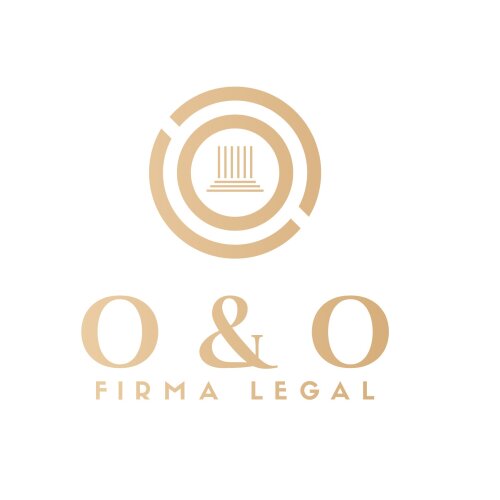Best Commercial Real Estate Lawyers in Bolivia
Share your needs with us, get contacted by law firms.
Free. Takes 2 min.
Free Guide to Hiring a Real Estate Lawyer
Or refine your search by selecting a city:
List of the best lawyers in Bolivia
About Commercial Real Estate Law in Bolivia
Commercial real estate in Bolivia encompasses the legal principles governing the acquisition, use, leasing, and sale of properties used for commercial purposes. The sector is a vital part of the Bolivian economy, particularly in major cities like La Paz, Santa Cruz, and Cochabamba. The legal framework for commercial real estate in the country is a mixture of national regulations and municipal guidelines. Understanding this framework is crucial for anyone involved in transactions involving commercial properties.
Why You May Need a Lawyer
Engaging with the commercial real estate market in Bolivia can be complex due to its unique legal landscape. You may require legal help in situations such as acquiring a new commercial property, negotiating lease agreements, resolving disputes over property rights, complying with land use and zoning laws, or when investing in real estate developments. A lawyer specializing in commercial real estate can provide invaluable guidance through these situations, ensuring your interests are protected and that all transactions comply with local laws.
Local Laws Overview
Commercial real estate law in Bolivia is influenced by several key pieces of legislation: the Civil Code, the Commercial Code, and municipal regulations. Notably, property rights are enshrined in the Constitution of Bolivia. Key aspects include property registration procedures, land use regulations, zoning laws, lease agreements, and tenant rights. Real estate transactions must be registered with local offices, while zoning laws may affect how properties can be developed or used.
Frequently Asked Questions
What are the primary legal documents required for a commercial real estate transaction in Bolivia?
Key legal documents include property title deeds, contracts of sale, lease agreements, zoning certificates, and registration documents.
Are there restrictions on foreign ownership of commercial real estate in Bolivia?
While foreign entities can own commercial property in Bolivia, there are specific legal requirements and limitations that must be complied with, particularly related to agricultural lands close to borders.
How are commercial lease agreements structured in Bolivia?
Commercial leases typically outline the terms of the tenancy, rent, duration, renewal options, maintenance responsibilities, and termination conditions. These must comply with local contractual laws.
How does the property registration process work in Bolivia?
Property registration in Bolivia involves submitting the property deed to the local Real Estate Office (Oficina de Derechos Reales) where it is reviewed and, upon approval, officially recorded.
What should I know about zoning regulations in Bolivia?
Zoning regulations determine how a piece of land can be used or developed. It is crucial to consult with local municipal offices to ensure compliance with these laws.
How are disputes over commercial real estate typically resolved?
Disputes can be resolved through negotiation, mediation, arbitration, or litigation. Legal assistance can help navigate these processes effectively.
What taxes apply to commercial real estate transactions in Bolivia?
Taxes may include transfer taxes, property taxes, and income taxes on rental income. It is important to consult with a tax advisor for specific obligations.
Are there environmental laws impacting commercial real estate in Bolivia?
Yes, commercial real estate projects must comply with national environmental laws, including assessments and permits where required.
How does one obtain financing for commercial real estate in Bolivia?
Financing can be obtained through local and international banks, offering various loan products. Terms and conditions vary, so thorough due diligence is recommended.
What are the risks associated with commercial real estate investment in Bolivia?
Risks include market volatility, legal complexities, currency fluctuations, and political considerations. Professional legal and financial advice can mitigate these risks.
Additional Resources
For further assistance, consider reaching out to governmental bodies like the Ministry of Urban Development and Housing, or organizations such as the Bolivian Chamber of Real Estate (CBINCO). Consulting with law firms experienced in Bolivian real estate can also provide additional support.
Next Steps
If you require legal assistance in commercial real estate, begin by consulting an attorney specializing in this field. Gather all relevant documentation of your property or transaction and have a clear understanding of your needs and objectives. Evaluate potential legal firms based on experience, expertise and client reviews before making a decision. It is also advisable to familiarize yourself with local regulations and processes to communicate effectively with your legal representative.
Lawzana helps you find the best lawyers and law firms in Bolivia through a curated and pre-screened list of qualified legal professionals. Our platform offers rankings and detailed profiles of attorneys and law firms, allowing you to compare based on practice areas, including Commercial Real Estate, experience, and client feedback.
Each profile includes a description of the firm's areas of practice, client reviews, team members and partners, year of establishment, spoken languages, office locations, contact information, social media presence, and any published articles or resources. Most firms on our platform speak English and are experienced in both local and international legal matters.
Get a quote from top-rated law firms in Bolivia — quickly, securely, and without unnecessary hassle.
Disclaimer:
The information provided on this page is for general informational purposes only and does not constitute legal advice. While we strive to ensure the accuracy and relevance of the content, legal information may change over time, and interpretations of the law can vary. You should always consult with a qualified legal professional for advice specific to your situation.
We disclaim all liability for actions taken or not taken based on the content of this page. If you believe any information is incorrect or outdated, please contact us, and we will review and update it where appropriate.
Browse commercial real estate law firms by city in Bolivia
Refine your search by selecting a city.














